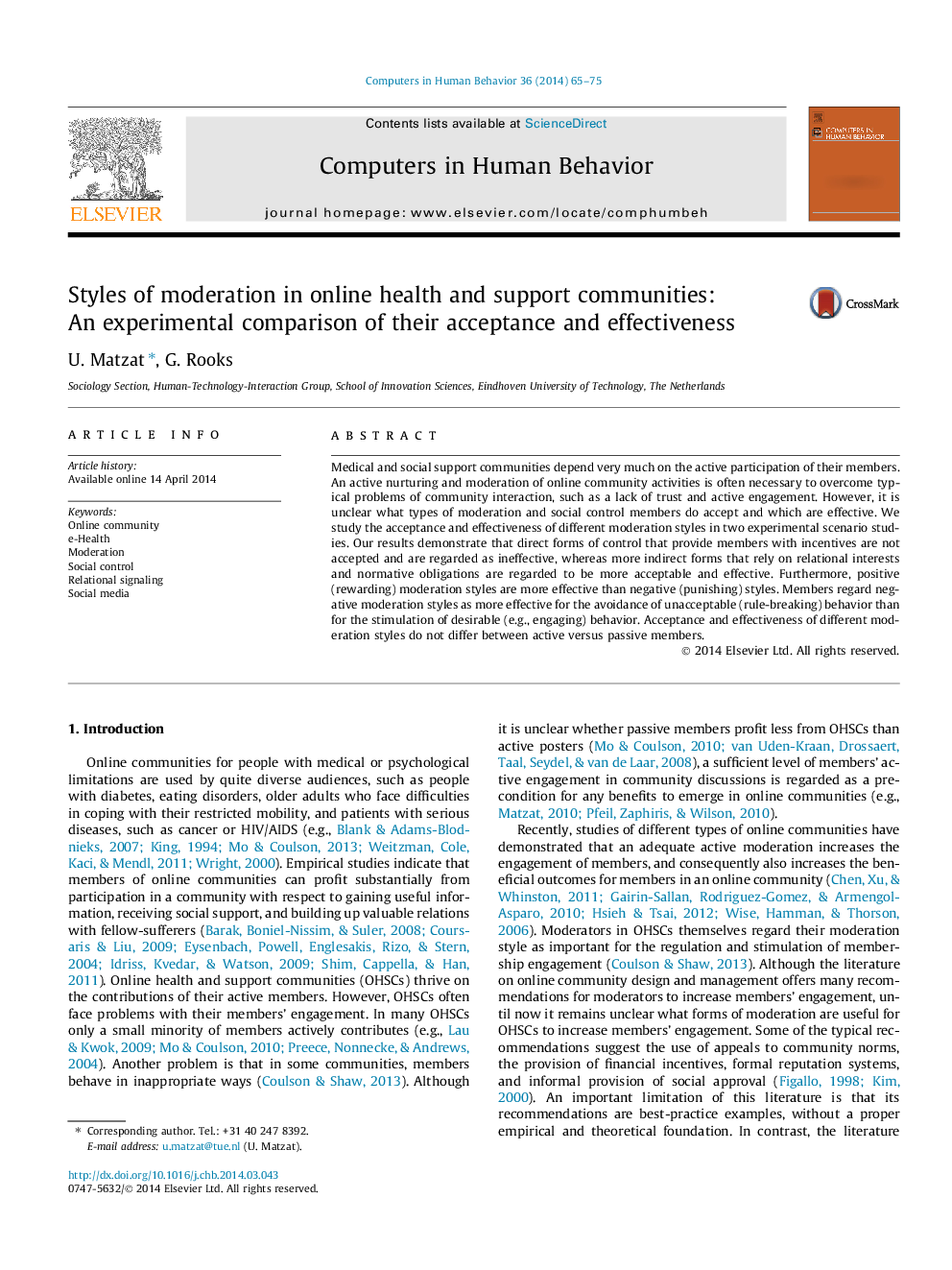| Article ID | Journal | Published Year | Pages | File Type |
|---|---|---|---|---|
| 350750 | Computers in Human Behavior | 2014 | 11 Pages |
•Scenario experiments with random sample of members of online health communities.•Indirect control more accepted and effective than direct control.•Rewarding moderation styles more effective than punishing styles.•No difference between active versus passive members in acceptance and effectiveness.
Medical and social support communities depend very much on the active participation of their members. An active nurturing and moderation of online community activities is often necessary to overcome typical problems of community interaction, such as a lack of trust and active engagement. However, it is unclear what types of moderation and social control members do accept and which are effective. We study the acceptance and effectiveness of different moderation styles in two experimental scenario studies. Our results demonstrate that direct forms of control that provide members with incentives are not accepted and are regarded as ineffective, whereas more indirect forms that rely on relational interests and normative obligations are regarded to be more acceptable and effective. Furthermore, positive (rewarding) moderation styles are more effective than negative (punishing) styles. Members regard negative moderation styles as more effective for the avoidance of unacceptable (rule-breaking) behavior than for the stimulation of desirable (e.g., engaging) behavior. Acceptance and effectiveness of different moderation styles do not differ between active versus passive members.
